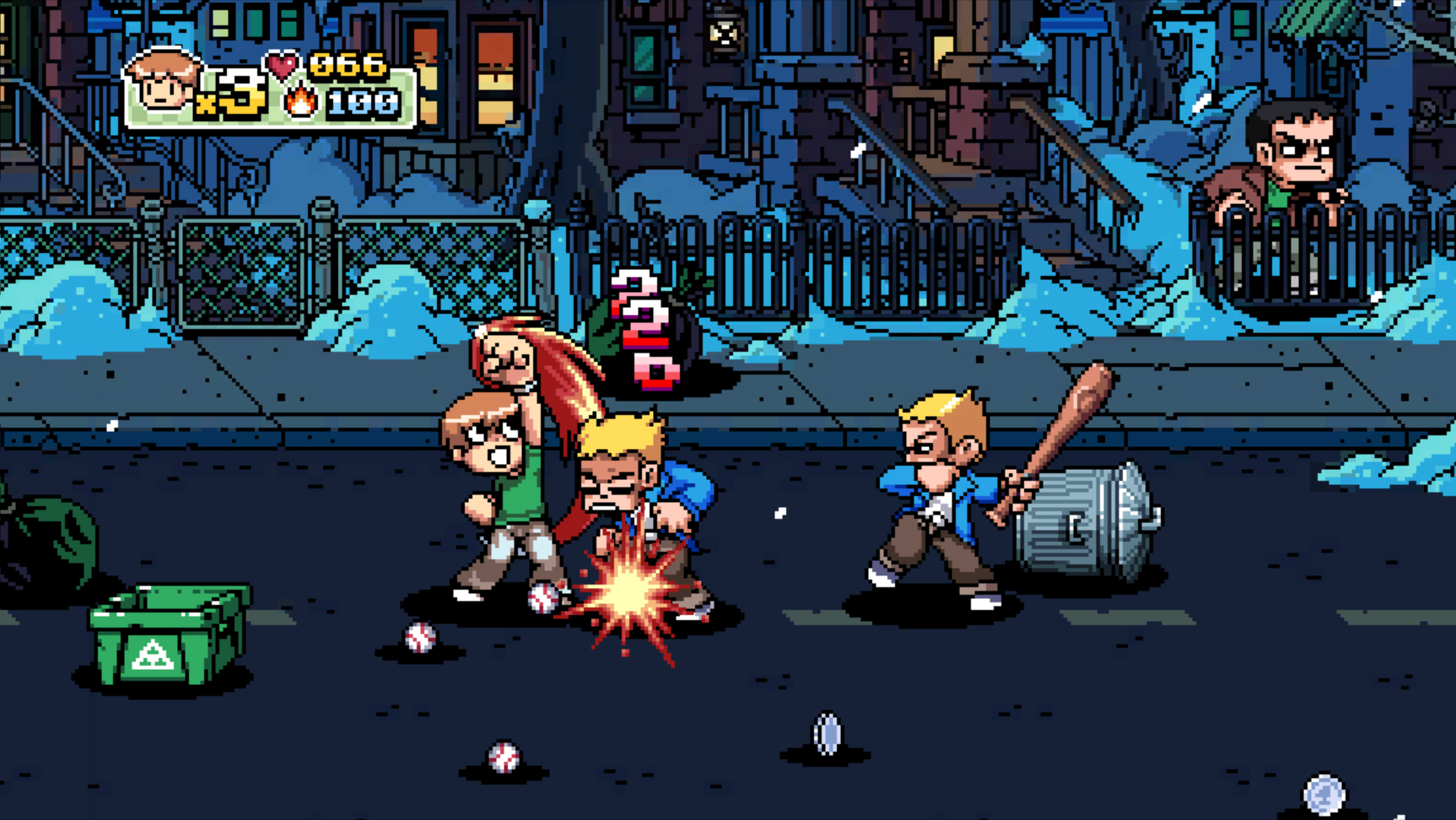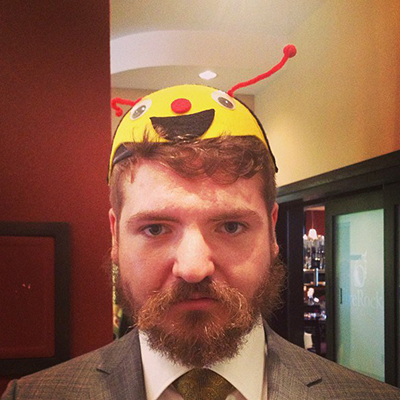Katsutoshi Eguchi describes his former colleague Kenji Eno as a tireless creator. “I feel that he had a unique talent to [enable] communication between people,” Eguchi said in a Facebook message.
Eno had a magically eclectic catalogue as a game designer, from the horror series D and the interactive audio drama Real Sound to Panic Restaurant, an NES platformer about a chef who has to fight his own food after being cursed by a rival. In 2009 he released You, Me, and the Cubes for Nintendo. It was a tricky, surrealist game that you could play with friends about lobbing tiny people onto—and hopefully balancing them upon—floating cubes. The development cycle coincided with the debut of WiiWare, Nintendo’s first digital distribution service, so the game released exclusively on that platform. An idiosyncratic gem that mixed a frustrating objective with the calming backdrop of a day spa, it was one of the more unique titles on the overlooked service.

Credit: Joi Ito (CC BY 2.0)
Eno passed away in 2013 due to complications from hypertension. He was 43. You, Me, and the Cubes was his final work as a game designer. As of January 2019, it no longer exists.
Cubes wasn’t singled out. The entire WiiWare catalogue was sundowned by Nintendo this year, just as Microsoft had sundowned XBLIG the year before. Now Razer, who bought the too-weird-to-live OUYA in 2015, has shut it down for good. Many notable games from these services have been ported to other platforms, but many others sink with the ship. They won’t be the last.
There are many reasons why games vanish, but it’s often due to external factors. Ubisoft’s Scott Pilgrim vs. The World: The Game and Sega’s OutRun Online Arcade suffered expired licenses from Universal and Ferrari, respectively. One of the best received games this year, the Taiwanese horror Devotion, was voluntarily removed from Steam over a blink-and-you’ll-miss-it jab at Chinese President Xi Jinping. The closure of Telltale Games made the rollout of their final chapters a weird nightmare. The most infamous disappearing act happened in 2015 when Konami scrubbed P.T. following the cancellation of Silent Hills, securing its cultish legacy.
These are small tragedies ahead of a mass extinction. As digitally exclusive games become our way of life, more distribution networks become long in the tooth. PlayStation Network started in 2008, while Xbox Live Arcade is old enough to drive. Once the cost of their upkeep laps their profitability, they will be retired—cost benefit assessments taking thousands of games with them. One day the library of the PlayStation Vita, which released as a device that prioritized digital distribution, will face a reckoning. New streaming services from Xbox, Apple and Google will similarly be digital-first.

Credit: Ubisoft
Between streaming and subscription services, the overall trend of entertainment is toward skipping retailers. Beyond saving money by distributing digitally instead of printing hard copies, it’s more profitable for publishers to sell something indefinitely. This is true of almost every medium, and video games aren’t the only type of media that’s in danger of going extinct. The closing of FilmStruck was a sobering moment for folks relying on commercial streaming amid a media war, and MySpace accidentally deleted 12 years of music, a generation of pop punk lit up like a gas explosion at the collective stripmall.
Music and film at least benefit from audiences that appreciate history and a hard copy. Music has vinyl and tape swaps. Film has rep theaters and movie palaces. Games have piracy and ROM sites, being hunted down and sued for millions by the likes of Nintendo. Games are beginning to exist tenuously. You can sweep up a lot more of film and music history at a flea market than games, whose legacy largely exist on esoteric servers. Preservation efforts are scrambling.
The solution to this growing problem will have to be tailored. The Ouya, while doomed, was designed with open source in mind, making archiving and emulation a viable option. Vojtěch Straka, an original backer leading the Ouya Saviors group, told me in a DM that while a lot of the Ouya’s oddball library is “crude,” the quality of overlooked games isn’t the point. It’s a moment worth preserving.
“By allowing to capture the platform as a whole, you are preserving a whole culture,” Straka said. “You are preserving the mindset that created one of the most successful Kickstarters of all time.… It shows the dissatisfaction of a whole generation of gamers and the boom of indie games that was still looking for its own identity.”
Eguchi wishes games were celebrated in museums to the degree of other preserved works of art. “Expressed by that work [You, Me, and the Cubes] is a collection of talent,” said Eguchi. “It is sad that the expression of our work is buried in the times.”

Credit: From Yellow to Orange, Nintendo
A change of culture would be nice, but the most prominent archival work will be piracy. Most of the WiiWare catalogue has backups floating around torrents and file sharing sites, as do similar services that have also shut down and some that are likely to in the future.
Cathy Vice doesn’t think games should resort to piracy for preservation. Better known as the Indie Gamer Chick, Vice runs one of the most exhaustive online catalogues of defunct games. Since 2011, she’s reviewed litters of XBLIG titles that no one else gave the time of day. She feels console makers and storefronts should be on the hook to ensure games avoid erasure as part of the publishing deal on day one.
“Every day people are clicking titles on my review index that aren’t available anymore,” said Vice on the strangeness of her prickly reviews becoming a historical resource. “Maybe it’ll contribute to creating a demand for access to them. Even if it doesn’t, I like the idea of my site’s archives being a time capsule.”

Credit: Robir
Listed on the Leaderboard page, where Vice ranks what she feels are the best indie games of all time, are many games that are gone for good. Vice said that a lot of XBLIG games won’t return. Some developers won’t port their first pass at game making, saving themselves a lot of wincing. Others were directly tied to the Xbox 360’s hat-crazed avatars and cannot function on other hardware. In the case of one of the most popular XBLIG games, Miner Dig Deep, Vice said the creators have “lost the original game files.” Vice has been dogmatically telling developers to port their work elsewhere. Earlier this year, she was working on a collection of XBLIG games to be released for modern platforms, but the project has since fallen through. Vice still plans to work with any interested XBLIG devs—“whether I liked their work or not”—to connect them with a publisher who can rerelease their games.
“Part of that is we have to care more as a community about preserving everything and not just the stuff we personally like,” Vice said. “Because it’s OUR culture’s legacy. All of ours. And you truly never know what will come of those classic games.… They [developers] shouldn’t feel ashamed or embarrassed of that first game. It could serve as inspiration for the next generation of indie developers. A reminder that everyone starts off at different places and not everyone finds success immediately.”
“I could feel that [these games] were made with passion, by people who loved games so much that they ended up making games themselves,” said developer Samu Wosada of XBLIG. Wosada initially just wanted to check out the XBLIG’s internal tool kit before things snowballed into one of the platform’s most memorable games, The Tempura of the Dead. He said the game could be ported if the demand is loud enough. Until then, the main character, President Thompson, appears alongside Astro Boy and The Binding of Isaac’s Isaac in Crystal Crisis, a baffling new crossover gem puzzler.

Credit: 8bits Fanatics
Many fans of gaming are living under the false pretense that more websites mean more scraps of culture are safe. This isn’t true. As every part of the web becomes commercialized, as every company wrestles with figuring out how to increase profit margins and what that means as far as tolerating political and erotic material and piracy goes, nothing is being built to last.
Whether we hold on to them or not, if we understand that the games of our past are no different than the places we’ve been, changing, evolving, evaporating, then maybe we can appreciate them more. Katsutoshi Eguchi is sad that his friend’s last game probably won’t be played by future generations. But he also feels that as long as there are images and videos, something in circulation, then You, Me, and the Cubes will continue to exist.
“Our game is the moment a player spends happily with a friend,” said Eguchi. “It will be a memory.… You can still feel it. Of course, playing directly is the most important, but it became impossible.”
Header image: You, Me and The Cubes / From Yellow to Orange, Nintendo
An earlier version of this article stated that Cathy Vice was working on a collection of XBLIG games for rerelease on current platforms. The project was canceled following our interview with Vice. The text has been corrected.

Zack Kotzer is a former carny and current writer out of Toronto. His work has been published in The Globe and Mail, The Atlantic, Motherboard, Polygon, Kill Screen, and a column in NOW Magazine. His first book, Keeping the Ball Alive, details the history of the only pinball factory to survive the ’90s. He collects Fido Dido merch.
